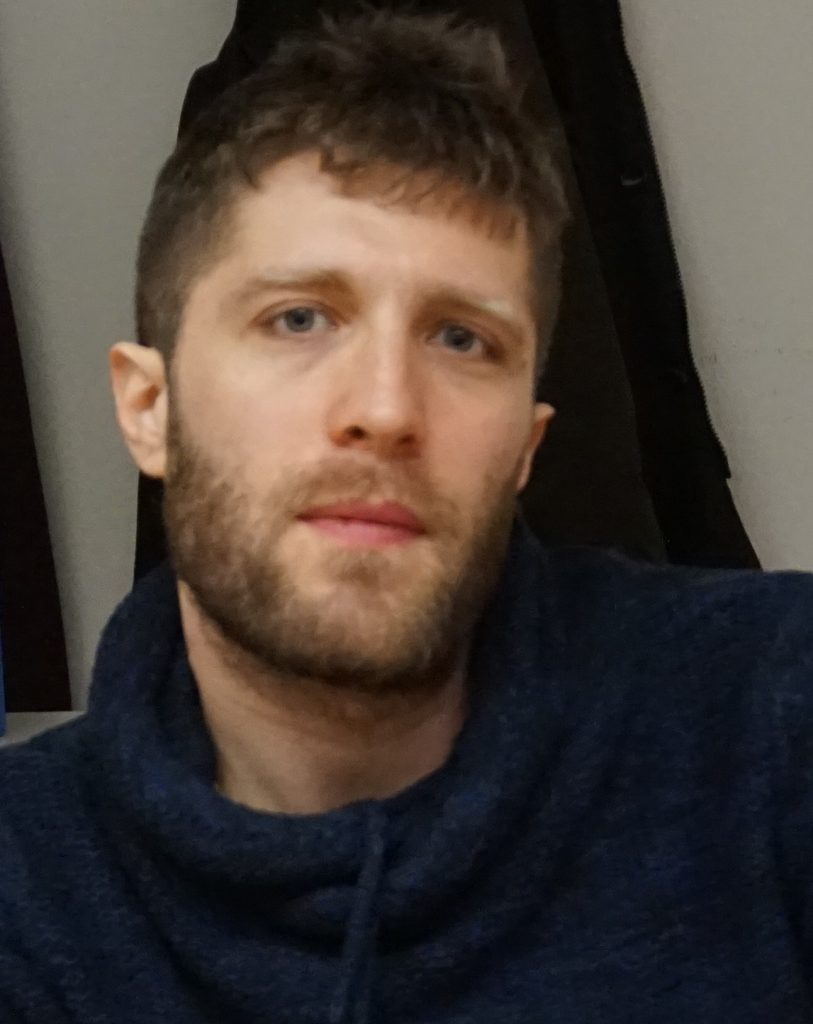In case of any technical or organizational problems, please contact: assistant@estd.org
The recording of this webinar will be available later as video-on-demand only for ESTD members.

The ESTD Scientific Committee is delighted to invite you to join for free this first event of a series of webinars with live presentations by early career researchers interested in dissociation and trauma related disorders!
This is a new initiative by our committee! It is our hope that sharing and discussing ongoing research, not least among early career researchers, will be mutually supportive, will build and strengthen clinical and scientific networks, and give inspiration to new projects within the field of trauma and dissociation – which is so much needed!
The overall duration of the webinar will be 90 minutes for two researchers to present and discuss their work successively, i.e., 45 minutes for each researcher/project. The researcher will be accompanied and guided during this time by expert mentor and senior researcher, dr. Johan Vanderlinden.
For this first event, Giulia DiFini (Winner of the “ESTD Poster Award, 2023”), and Andrea Zagaria, will successively present their remarkable work!

Dr. Giulia Di Fini, Ph.D, Department of Psychology, University of Turin, Italy
Abstract
Gender dysphoria (GD) is described in the DSM-5 as a condition of psychological distress resulting from an incongruence between one’s gender assigned at birth and one’s gender identity. It is a complex and multifactorial phenomenon often associated with lack of acceptance by family or social environment. Despite scientific evidence of the importance of early relationships for personal development, research on the impact of the family environment and primary relationships of people with GD is still limited. This study was conducted at the Department of Psychology, University of Turin, in collaboration with the Carlo Molo Onlus Foundation. We examined the prevalence of different types of adverse childhood experiences and their impact on adults attending a specialized gender clinic (C.I.D.I. GE.M. – a public health service for GD people in Turin) compared to a cisgender control group. We also examined the role of medical transition and psychological treatment on levels of dissociation, processing of traumatic experiences, attachment security, and levels of reflective functioning.
Transgender individuals often experience victimization through persistent discrimination and are often not socially accepted. Results of this study may be useful to highlight the potential risk factors for mental health of transgender people and to better understand their needs and expectations during the process of gender transition. Within a multidisciplinary team, the psychotherapist has a role in helping the person process traumatic memories to improve resilience and well-being in the free expression of gender identity.

with Andrea Zagaria, Ph.D, Dipartimento di Psicologia e Scienze Cognitive, Università di Trento, Italy
Abstract:
The concept of attachment trauma (AT) is more and more spread among clinicians and researchers, to the degree that the most recent conference of the European Society of Trauma and Dissociation (ESTD; Bruxelles, March 2023) has been named “Where attachment meets trauma”, and a recent symposium in honor of Mary Main hold at the University College of London (UCL) referred to AT too (UCL; London, May 2023). However, despite the wide use of the term in the scientific and clinical literature, there is no rigorous conceptual review of AT, nor an unanimous definition of it. That results in a confusing plethora of names: interpersonal trauma, betrayal trauma, early trauma, complex trauma, childhood trauma, etc. (see Isobel, Goodyear & Foster, 2019). More often than should be expected, also researchers conflate different concepts related to AT altogether (e.g., conflating disorganized attachment with AT, conflating complex trauma with AT, confusing fearful attachment with disorganized attachment, etc.). Drawing on a submitted review, I will first define attachment, trauma, and AT rigorously. Secondly, I will pursue a quick integrative review of the different lines of research that have addressed topics related to AT. The lines of research have been categorized as 1. Infant disorganized attachment; 2. Unresolved/disorganized adult state of mind; 3. Fearful attachment in personality psychology; 4. Complex Post Traumatic Stress Disorder; 5. Adverse Childhood Experiences; 6. Neuroscience research; and 7 Clinical literature. I will eventually describe how AT properly defined might be the integrating missing piece between these different research traditions.
She practices a private clinical counseling activity, both with adult patients and with developmental age patients. She is the author of scientific publications and currently collaborates with the Department of Psychology, University of Turin and various private educational institutions, where she carries out teaching and research activities in the fields of clinical psychology, attachment and trauma.
Adopting an enquiring philosophical mindset, he has a strong background in evolutionary psychology but leans toward clinical psychology and psychopathology. His current research is centered on attachment trauma, and he is developing a new psychometric questionnaire, the AATQ (Adult Attachment Trauma Questionnaire), to assess it. Zagaria's research interests lie at the intersection of theoretical psychology, personality psychology, evolutionary psychology, and psychometrics.
In case of any technical or organizational problems, please contact: assistant@estd.org
The recording of this webinar will be available later as video-on-demand only for ESTD members.